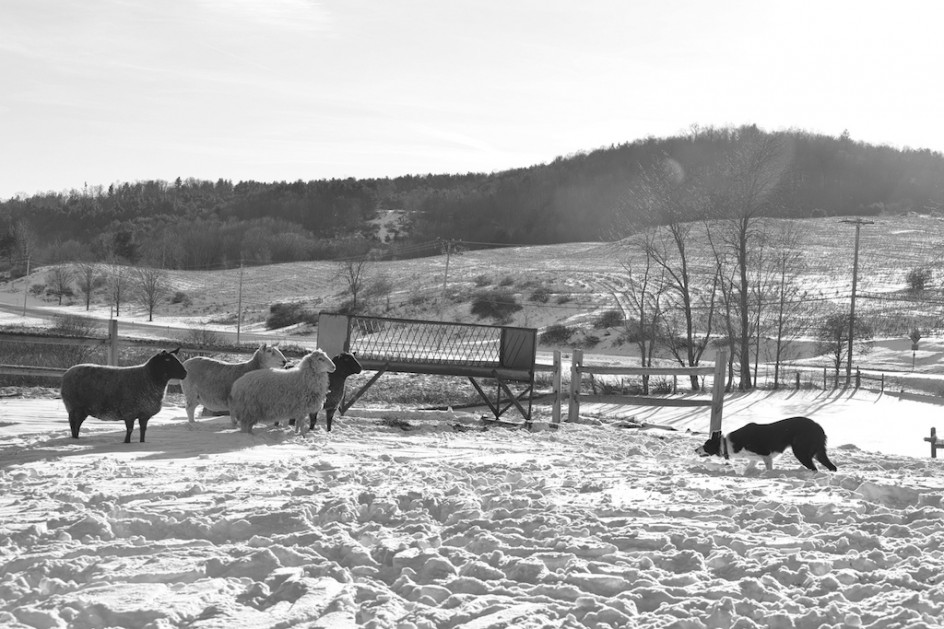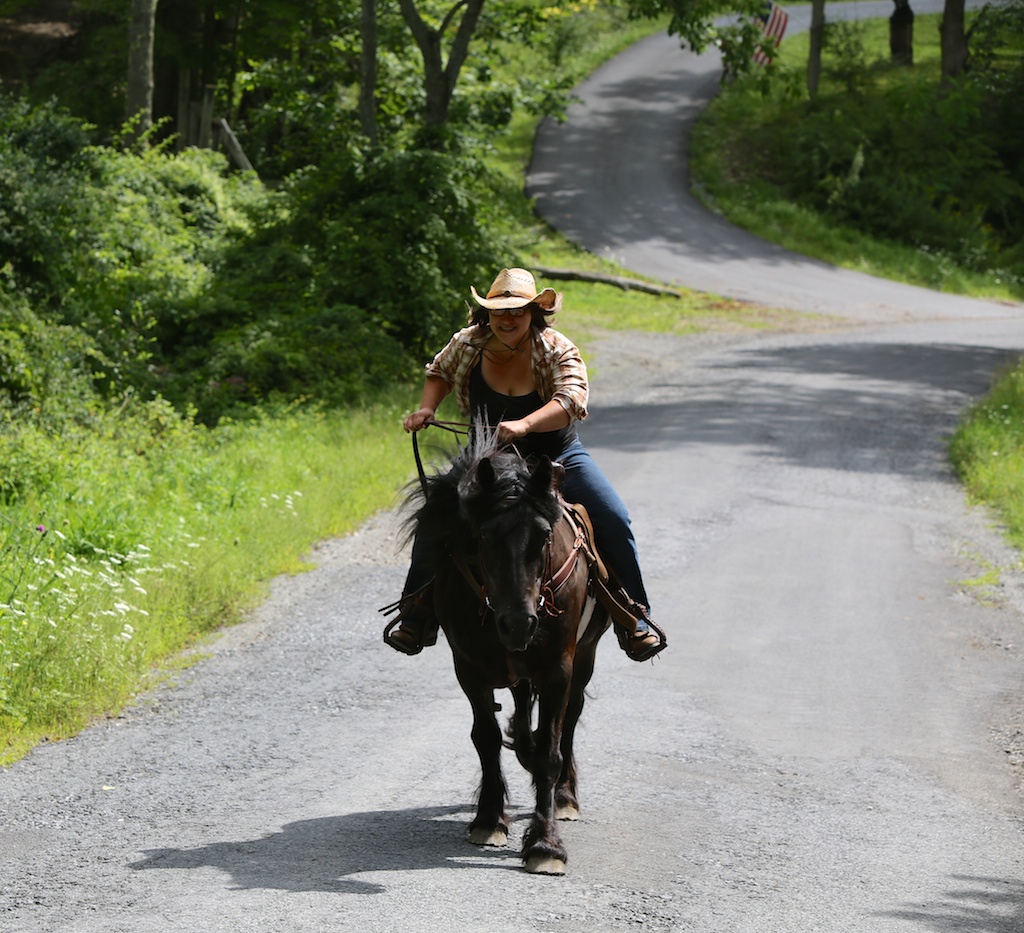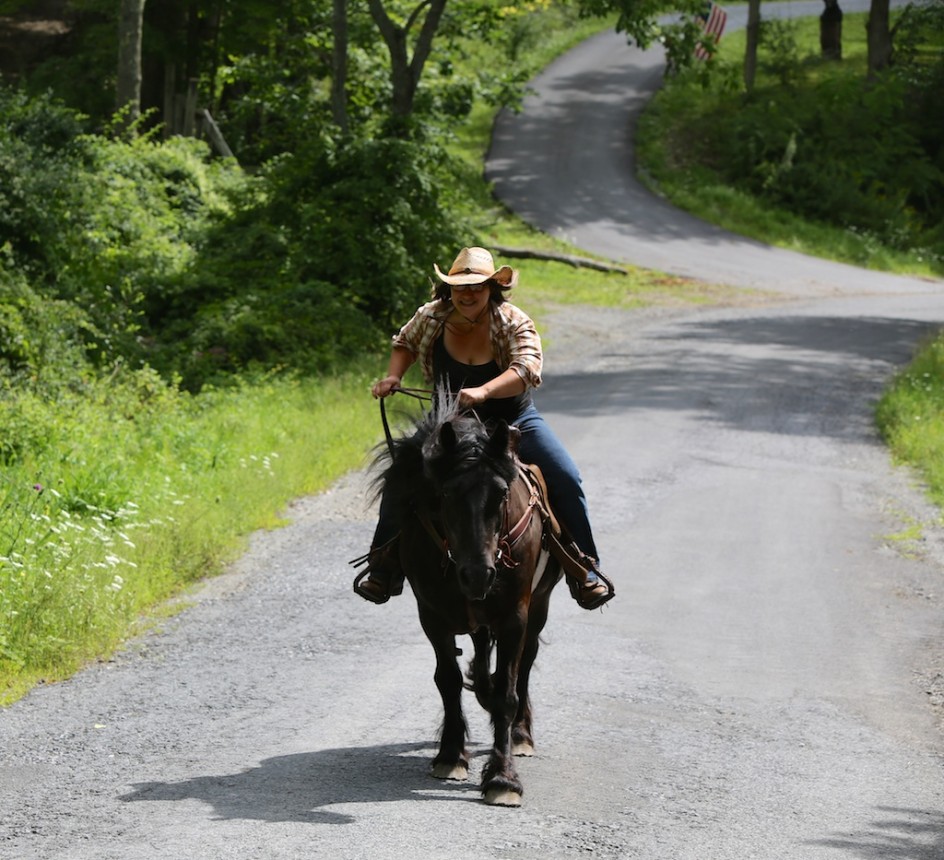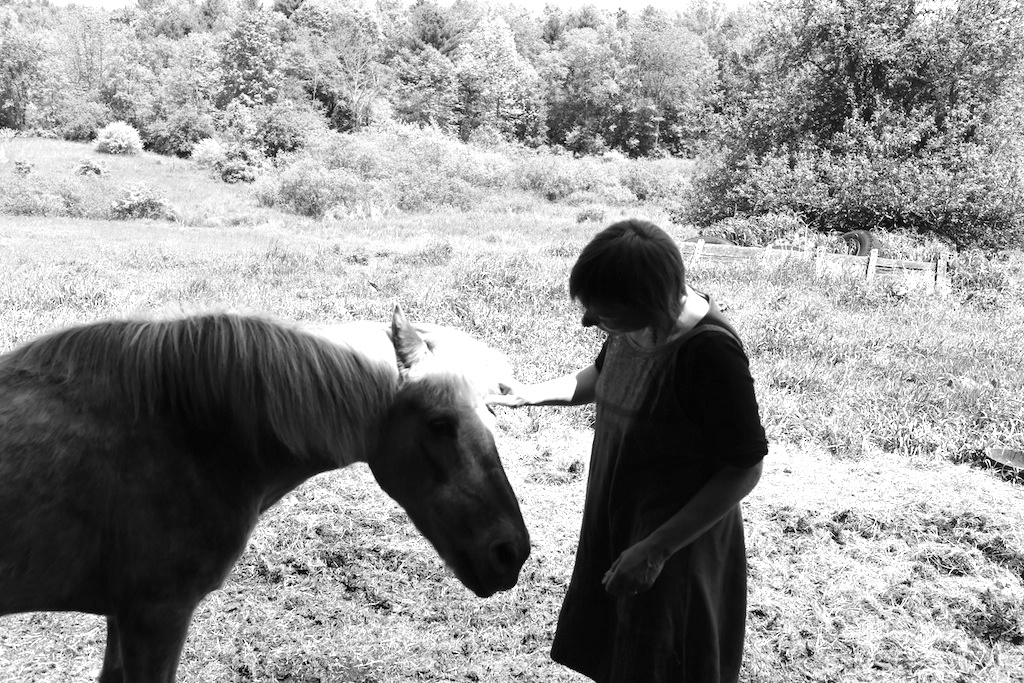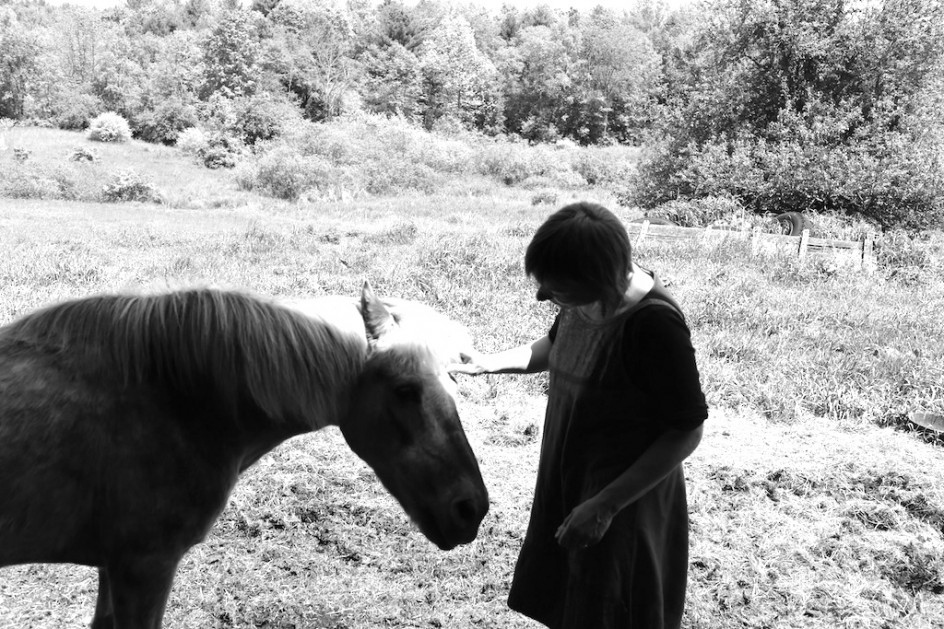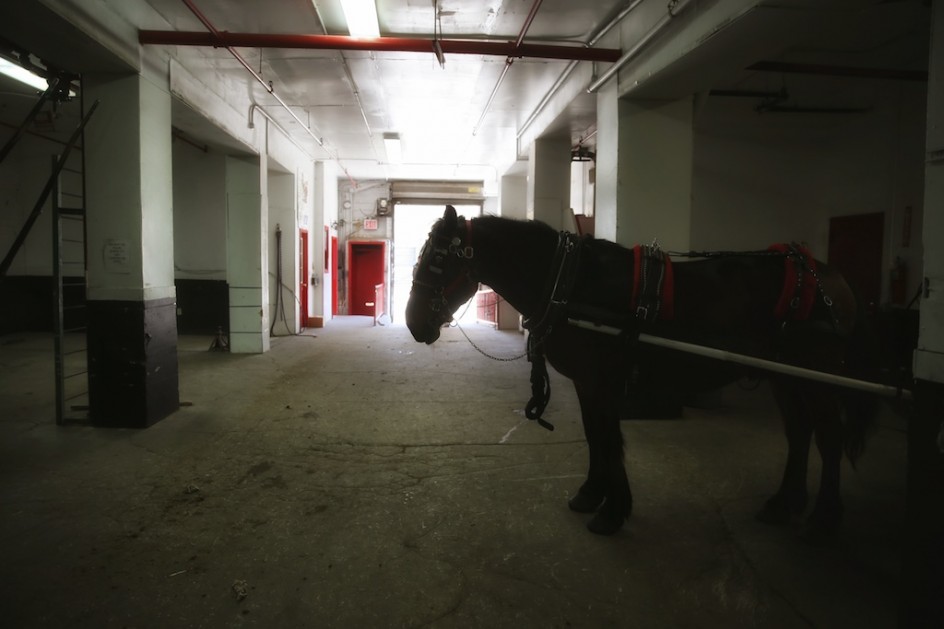
The messages come to me almost every day now, sometimes in letters to my Post Office Box (Box 205, Cambridge, N.Y., 12816), sometimes through Facebook, sometimes in e-mail. Sometimes, the messages are about the elephants they are banning from the circus, one was about rabbits stolen by people who said they were for animal rights.They did not think rabbits should be sold for meat – the stolen rabbit’s 10 abandoned babies slowly starved to death. They shut down a petting zoo in a mall in Missouri because they said it was cruel to have petting zoos with goat and sheep and alpacas, and in North Carolina; a small traveling fair was forced to sell a baby elephant after protestors claimed it was abusive for her to be working.
One newspaper clip from Minneapolis told of an organic farmer who is being picketed, his work banned from food markets because he sold cheese from his goat. Animal rights groups across America, perhaps encouraged by the effort to ban the carriage horses in New York, are seeking to ban carriage horses in a number of cities, including Cincinnati and Chicago. They are also seeking to ban pony and donkey rides in a number of county fairs and many animals from circuses. I suppose it was inevitable that they would come for the ponies.
Yesterday, one letter came that pierced my heart, a letter from Dana, a ll-year-old girl in Santa Monica. She said she had been up much of the night crying because they are trying to ban the pony rides in the Farmer’s Market in Santa Monica, California. Dana rides them as often as her allowance permits, she says, she has learned a lot about animals from them. “I am writing this so you will write about this and help us save the ponies,” she said, “my mother says you are writing about the horses in New York. Please, please, please, help us save the ponies.”
Dana enclosed a clipping from the Santa Monica Daily Press from April 2 describing a campaign by a former congressional candidate, Marcy Winograd, who told the paper that she is gathering signatures on a petition to ban the ponies. “We do not want to pray on the most vulnerable population, children, by teaching them that it’s OK to abuse animals,” she said in an interview. “I’m sorry, but when you have ponies walking for hours around in circles, tethered to a pole, next to loud music and lots of commotion, that, in my opinion, is abuse.”
Winograd demonstrated two things to me in her comments, she knows nothing about abuse and even less about animals. She reminds me of the comments of New York’s mayor about the carriage horses there. Animal abuse is a criminal offense; it is a legal term that defines abuse as the willful affliction of pain and suffering on helpless animals, used in cases of starvation, savage beatings, exposure, and other neglect that results in serious injury or death. It is not an opinion or an argument, abuse does not in any way morally or legally apply to Winograd’s notion of how a pony should live, or to a pony giving rides to children.
Abuse is an important concept; it is the way in which we can actually protect animals, it is losing it’s meaning it is so incorrectly and wantonly invoked. Increasingly, it is being unfairly and inaccurately invoked as an excuse for removing more and more animals from our midst. They do not ever return.
Secondly, Winograd reveals what is a familiar strain in the debates about the New York carriage horses, an almost total ignorance of animals, what they like and how they really live. Domesticated animals like ponies, working horses, dogs – even some circus animals – love to be with people and work with them, it is what they are bred for, trained for, what they have done for hundreds, if not thousands of years.
There is nothing abusive to a pony about walking in circles; it is more stimulating, invigorating and healthy for them than standing still in the corral for hours eating and dropping manure. There is no evidence of any kind that music is disturbing to animals or unhealthy for them; it is, in fact, often piped into stables and veterinary clinics to calm and soothe them. Working animals love to work, and they love attention, and anyone who has seen a donkey or pony or horse with children can see the powerful connection that often occurs, the rich experience for children of seeing an animal, of seeing what may be lost forever in this world.
My donkey Simon, who actually was abused – it is a crime for people to use the term so ignorantly – and nearly starved to death, loves to be around children, his ears go up, he nuzzles them, loves to be touched and brushed by them. Simon would love to give rides to children, I just never thought of it, he never tires of being around them, they never tire of being around him.
One parent told me it changed the life of her autistic son to kiss Simon on the nose and hold him for many minutes. It sure had me in tears. In a sane world, we will turn society upside down to find more ways for children to be around animals like ponies, donkeys or the very calm and accepting carriage horses of New York.
One of the richest experiences in my life with animals is seeing Simon, this reborn animal, once near death, giving children the great gift of seeing how wonderful donkeys are, hardly any of them have ever seen one. Winograd seems to be drawing from the bizarre animal ideology advanced by the mayor of New York and his allies in the animal rights movement: the only proper place for domesticated animals are the farms of the wealthy or the struggling, overwhelmed and generally impoverished rescue preserves. They seem actually to believe it is abusive for working animals to work it is abusive for working animals to work.
Dana told me that she and her friends and their parents were fighting back. I can see that this is true from the follow-up story in the Santa Monica Daily Press, which seems like a fair newspaper. Unlike the New York media for so many years, and for so many stories, the Santa Monica paper actually contacted the owner of the ponies to seek her comment. Things are changing, I see. The counterattack from the pony supporters was powerful and instantaneous.
The supporters quickly gathered more than twice as many signatures in favor of keeping the ponies as Winograd did to ban them. Winograd’s first demonstration drew only six people. She is vowing to return this weekend, but there is a backlash to these campaigns. The most heartening statistics in the struggle in New York City are the recent poll results showing the people of New York want the horses to say by a three-to-one margin. The dynamic is changing; animals might get some rights after all – including the right to survive and remain in our communities and have meaningful work with human beings.
Tawni Angel, the owner of the ponies, said in an interview that 70 per cent of them – like the New York carriage horses – are rescued animals, saved from slaughter at auction. They would be dead if they were not giving rides to kids. She said the ponies live in five-acre pastures, and that her goal in offering the pony rides is, in part, to teach children about animals. “I can’t tell you how many times a kid has asked me what a chicken is,” she said. “The main reason I do this is for the kids. Where else are they going to see goats and alpacas? I’m not getting rich off this.”
In a ritual painfully familiar to the New York carriage horse owners and drives, Winograd dismissed Angel’s reasoned arguments out of hand, she brushed aside all of her comments and explanations, there is no dialogue or learning with much of this movement, it seems, they live and work in their own bubble. There is no discussion, no give-and-take, no negotiation. Not ever. Winograd said petting zoos are abusive to animals as well.
“It’s hardly a family or “festival atmosphere,” she said “when small horses plod for hours in tiny circles, their heads bowed and tethered to a pole. What would we call it if human beings were forced to do this? We would call it torture.”
Personally, I would call it working in an Amazon warehouse. Unlike the employees there, the ponies get to move slowly, they work outdoors and have shade; they get frequent breaks, they don’t work every day, and are petted and loved by children all day.
In her comments, Winograd demonstrates, blessedly, that she knows as little about torture as she does about animals or abuse. I doubt people who are burned by cigarettes, have their fingernails pulled out, have electric wires attached to their vaginal and genital areas, or are beaten to death or killed, would compare their experience to being a pony riding children around in circles all day, or to a horse pulling a light carriage on flat ground. It is profoundly insensitive to the many sufferers of real torture in our world for the term to be used in this way, just as the term “abuse” is tossed around like confetti and has lost all real meaning to most people.
When I was in New York last week, I saw a hard-working Labrador working for the Amtrak Police. What, I wonder, would Winograd say about this big and beautiful Lab, spending all of his days listening to announcements on the loudspeaker, the constant rumble of trains, walking back and forth in circles all day through the vast waiting room, sniffing bags, head lowered, nose to the ground. If it is torture for ponies to ride children in circles, what would she say about the Lab in Penn Station?
The actor Alec Baldwin referred recently to the New York horse carriages as “torture wagons.” Steven Nislick, the millionnaire leader of NYClass, the group spearheading the move to ban the horses in New York, told an an interviewer that he believed the carriage horses would be “better off dead” than pulling carriages on New York.
I suppose if he is successful in his effort to shut down the carriage trade, we may sadly get to find out if this is so.
The true animal heroes in stories like this are not people like Winograd or Baldwin or Nislick, who seem to know nothing at all about animals and their welfare. If you think about it, they are the carriage trade owners and people like Tawni Angel, who keep animals in our world and give people, especially children, the opportunity to see and learn about animals and love them in a world increasingly disconnected from nature. Angels says she makes little or no money from her petting zoo and pony rides, and anyone who has been around farm animals, petting zoos or pony rides knows this is true. The money, she says, enables her to keep the animals on her farm, which she loves.
Doesn’t it seem that animal lovers and people who claim to support the rights of animals would applaud a person like this, rather than harass them and try and put them out of business, and put her ponies at risk? My understanding of animal love and animal lovers is that they – we- want more animals in our world, not less, we seek to find ways to keep them among us, to improve their lives, not to banish them from our lives, where they will never again be seen or known. Animals do not exist only to be rescued and pitied, we need a new and more mystical understanding of them.
The political pressure on politicians ought to be to find ways of keeping animals in urban areas, not taking them from us, closing down business, putting people who care for them out of work. If they can come for the ponies, they can come for you.
People who love animals rather than themselves – Tawni Angel comes readily to mind – always struggle for ways to live with them, pay for them, keep them among us. How wonderful that someone would take the trouble to give children access to ponies, I can hardly imagine a greater gift for them in their Instagram/PlayStation/CellPhone world. I would so prefer my daughter to take a pony ride than text all day long or stare at a screen.
Winograd does not understand any more than the animal rights activists in New York do that without people like Angel or the carriage grade people, these ponies and horses would most likely be dead, removed from human experience and gone from the world and the sight and experience of children and adults.
Animals who work help the people who love them – just like Angel – pay for them, not abuse them, and they get to stay alive. People do not get rich keeping animals. One has only to look at the holocaust that has afflicted the animal world in the 21st century, animals without connections to people are mostly gone or perishing.
The real abuse is the idea that animals can only exist in shelters and rescue preserves and the farms of the rich. Tawni Angel is a true animal rights hero.
People who care about animals all around the country seem to be awakening to the implications of the misuse of abuse to remove animals from the world. In Santa Monica, the counterattack against Winograd and her petition was swift and strong. Supporters of animals and of the ponies learned from the mistakes of the New York carriage horse owners, who waited years to forcefully respond to the largely false accusations made against them. This hesitation made them appear guilty, allowed the accusations to grow and lodge in the public mind. They are now speaking up, and the public is rallying to them.
People in Santa Monica did not wait to respond.
And what of Dana, one of the children Marcy Winograd and the other animal rights activists demonstrating each week are trying to protect. We exchanged some e-mails, and she said none of the animal rights organizations seeking to ban the pony rides had talked to her or any of the other children she knows, all of whom love the ponies and very much want them to stay in the Farmer’s Market.
What, I asked her, with her mother’s permission, is the lesson the pony rides are teaching her? Is it really how to abuse animals?
It took a few minutes for her to reply. “I love the ponies,” she said, “they teach us how to touch them gently, and pet them. I would never hurt one, they people there show me how to be nice. If you aren’t nice, you can’t ride them. I have learned that I love animals and I hope the ponies are always around for me to go and see. All of my friends feel the same way. We are all very sad that they are trying to take the ponies away. Where will I ever see one?”

